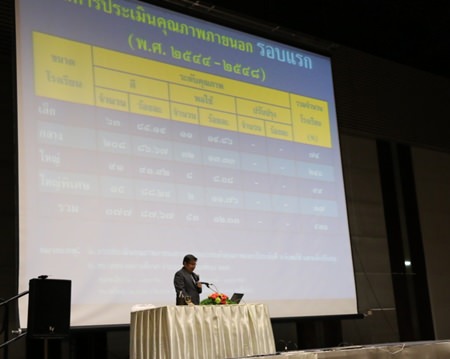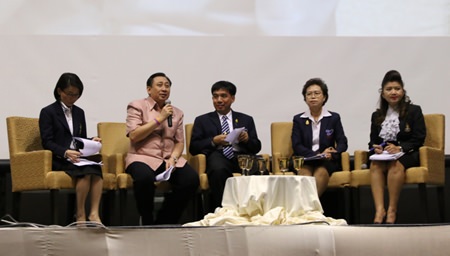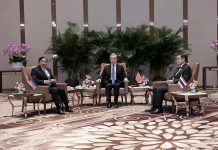BANGKOK, 3 July 2015 – The Bangkok Metropolitan Administration (BMA) together with the Office for National Education Standards and Quality Assessment (ONESQA) have announced their ambition to make Bangkok the capital of educational opportunity in ASEAN by stepping up the quality of education in all schools within Bangkok.
M.R. Sukhumbhand Paribatra, Governor of Bangkok said that upon entering the ASEAN Community, the BMA hopes Bangkok will be the leading city in various fields such as economics, industrial activity, and technology, but especially in education and human development through cooperation with ONESQA. The two, aim to make Bangkok the leader in educational opportunity in ASEAN by the implementation of an Area-Based Assessment to generate recommendations and development strategies for schools under the BMA’s supervision.

M.R. Sukhumbhand added that to make Bangkok a city of learning opportunities, there are seven steps:
1. Provide an educational opportunity to those who do not have ready access to education.
2. Provide opportunities to further one’s educational level
3. Create learning opportunities for schools in Bangkok with high quality teachers
4. Organize a better learning environment
5. Create opportunities to study foreign languages to prepare students for ASEAN
6. Create opportunities through seminars to encourage teachers to improve the quality of their teaching.
7. Create opportunities for schools that don’t pass the assessment test to accelerate development .
Prof. Dr. Channarong Pornrungroj, ONESQA’s director said that there are 438 schools in Bangkok, all of which have been assessed by ONESQA, 391 schools or 89.27 percent received a good to excellent mark. This reflects the BMA’s development policy in four areas namely, 1. Emphasizing a student’s personal development through various activities. 2. Develop schools along with personnel who play a major role in guiding and supporting students to receive education, to study and graduate well, achieving the required standard. 3. Develop institution’s access to information technology for faster and better access to information for education. 4. Further adding foreign language classes to prepare students for the ASEAN community.
Prof. Dr. Channarong further added that to cope with the growing population of Bangkok, with a regular birth rate of around 101,112 per year, along with 3,000,000 hidden people living in the city and an additional 1,000,000 foreign laborers, schools under Bangkok’s supervision must further expand themselves and must continue to develop the quality of their education, to supply a high standard of education to all living in the city of angels.





